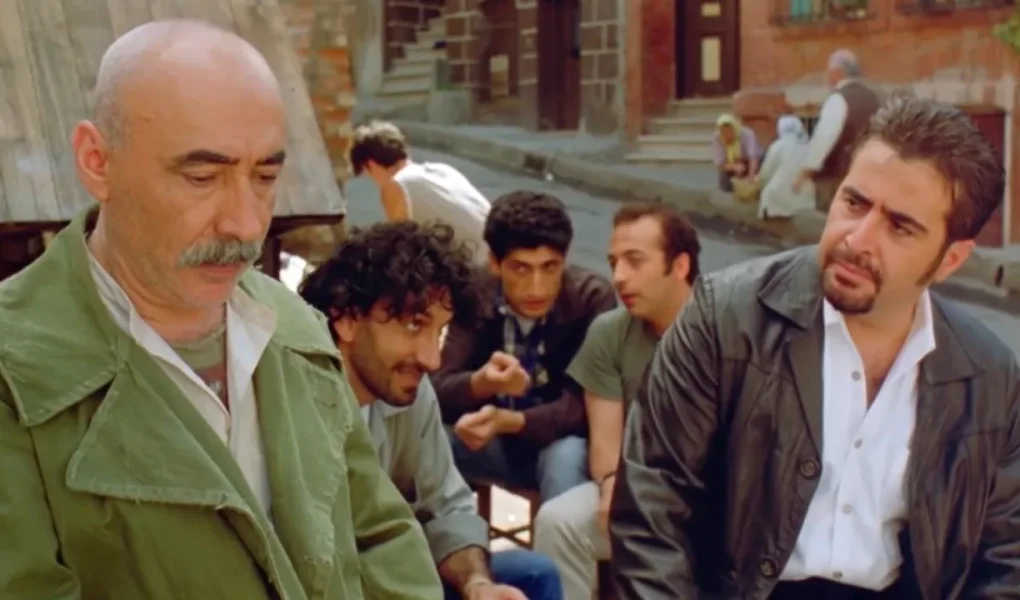lotusyouthcouncil.com – Yavuz Turgul’s 1996 film The Bandit (Eşkıya) stands as a landmark achievement in Turkish cinema. This neo-noir crime drama not only captivated audiences with its compelling story and powerful performances but also played a crucial role in revitalizing the Turkish film industry, which had been struggling for years. The Bandit brought a new level of sophistication and artistry to Turkish filmmaking, paving the way for a new generation of directors and actors.
A Return to Istanbul: A City of Shadows
The film tells the story of Baran, a hardened bandit who is released from prison after serving 35 years. He returns to Istanbul, a city vastly changed from the one he left behind. Disoriented and struggling to adapt to the modern world, Baran sets out to find his childhood friend and partner-in-crime, Cuma, who he believes betrayed him years ago.
Istanbul itself becomes a character in the film, a sprawling metropolis filled with both glittering modernity and dark undercurrents. The city’s shadowy alleyways, bustling streets, and dilapidated buildings provide the perfect backdrop for Baran’s quest for revenge and redemption. The film’s visual style, with its evocative cinematography and atmospheric lighting, contributes significantly to its neo-noir aesthetic.
A Man Out of Time: The Bandit’s Journey
Baran is a man out of time, a relic of a bygone era struggling to navigate the complexities of the modern world. He is a man of honor and loyalty, but also a product of his violent past. His journey through the unfamiliar landscape of contemporary Istanbul is both a physical and an emotional one.
The film masterfully portrays Baran’s internal conflict. He is torn between his desire for revenge and his growing awareness of the futility of violence. His encounters with new people, particularly a young woman named Emel, begin to chip away at his hardened exterior, offering him a glimmer of hope for a different future.
Betrayal and Redemption: The Core of the Narrative
At the heart of The Bandit lies a story of betrayal and the possibility of redemption. Baran’s search for Cuma is driven by a deep sense of betrayal, but as he unravels the truth of what happened years ago, he is forced to confront his own past actions and the consequences of his choices.
The film explores the complex dynamics of friendship, loyalty, and betrayal. It delves into the motivations behind the characters’ actions, revealing the human vulnerabilities that lie beneath their hardened exteriors.
A Turning Point for Turkish Cinema: Impact and Legacy
The Bandit was a massive commercial and critical success, attracting huge audiences in Turkey and receiving international acclaim. Its impact on Turkish cinema was profound. The film demonstrated that Turkish films could be both commercially viable and artistically significant.
The film’s success helped to revitalize the Turkish film industry, which had been in decline for several years. It paved the way for a new wave of Turkish filmmakers who were inspired by its innovative storytelling, sophisticated visuals, and powerful performances.
Enduring Appeal: A Timeless Story of Human Nature
The Bandit‘s enduring appeal lies in its timeless exploration of universal themes such as loyalty, betrayal, revenge, and redemption. It is a story about human nature, about the choices we make and the consequences we face. The film’s powerful performances, evocative visuals, and compelling narrative continue to resonate with audiences today, solidifying its place as a classic of Turkish cinema. It remains a powerful and moving film, a testament to the power of storytelling and the enduring appeal of the neo-noir genre.




